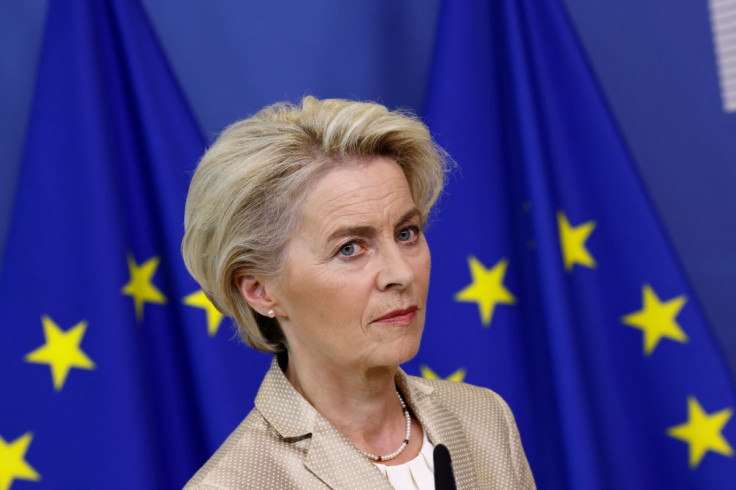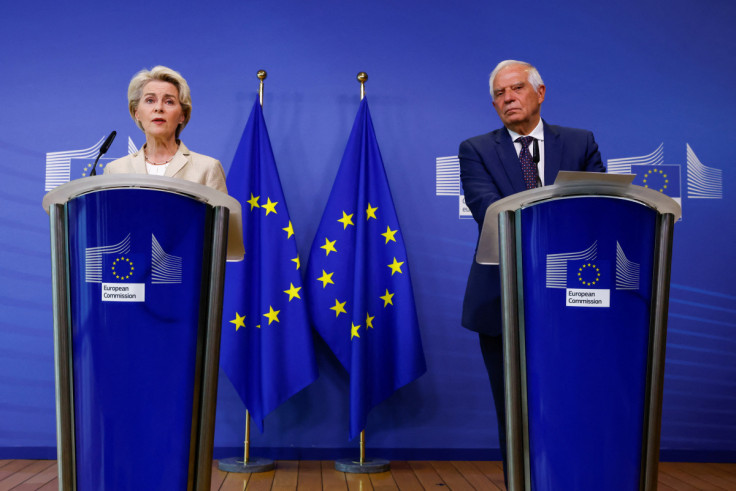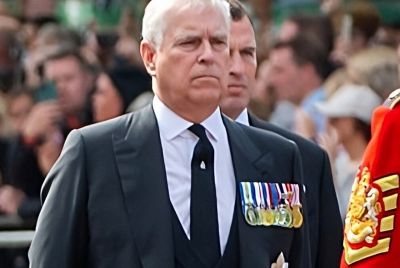EU executive proposes new 'biting' sanctions on Russia for Ukraine escalation
European Commission President Ursula von der Leyen on Wednesday proposed fresh sanctions against Russia over its war against Ukraine, including further trade restrictions, individual blacklistings and an oil price cap for third countries.

European Commission President Ursula von der Leyen on Wednesday proposed fresh sanctions against Russia over its war against Ukraine, including further trade restrictions, individual blacklistings and an oil price cap for third countries.
The proposal will now go to the bloc's 27 member countries, which will need to overcome differences on the new sanctions and reach unanimity to implement them.
That may take time despite the EU being spurred into action by Russia's partial military mobilisation, nuclear threats to the West and moving to annex a swath of Ukraine.
"We do not accept the sham referenda nor any kind of annexation in Ukraine. And we are determined to make the Kremlin pay the price for this further escalation," von der Leyen told reporters.
"We are proposing a new package of biting sanctions against Russia."
Earlier on Wednesday, a senior economic adviser to Ukrainian President Volodymyr Zelenskiy called on the EU to further cut money flows to Russia from fossil fuel sales.
The G7 group of industrialised countries - where EU countries Italy, France and Germany are also members - already agreed to put such an oil price cap in place via insurers.
"If you are doing nothing it means you are just prolonging this war with Ukraine, this is just ridiculous, the whole civilised world has to be united on that," Oleg Ustenko told reporters.
While the EU already agreed to stop importing Russian oil starting later this year, Ustenko said the "blood money" would keep on flowing to Moscow unless European companies are banned from insuring seaborne shipments.

Copyright Thomson Reuters. All rights reserved.




















